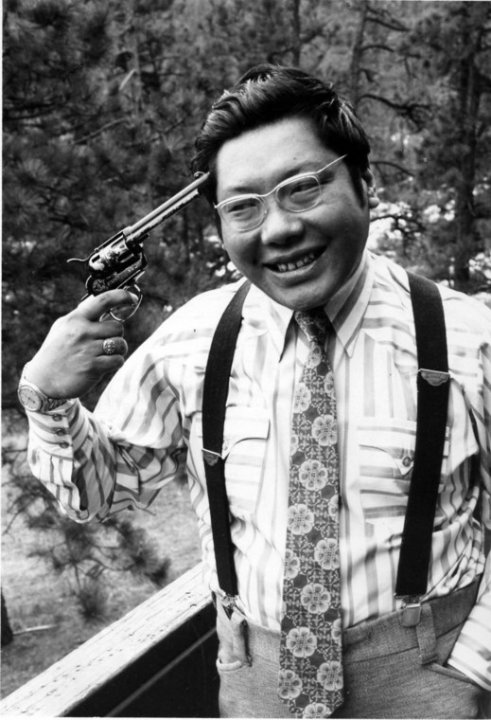Crazy Wisdom (Johanna Demetrakas, 2011): USA
Reviewed by Byron Potau. Viewed as part of the Santa Barbara International Film Festival.

Director Johanna Demetrakas’s documentary about Tibetan Buddhist Chogyam Trungpa Rinpoche, Crazy Wisdom, only succeeds in being occasionally interesting as it struggles to focus the aspects of Trunpa’s life into something cinema friendly.
Trungpa was recognized as a reincarnate master at 18 months old. He fled Tibet with the Dalai Lama to India, and eventually studied in England at Oxford. Trungpa continued to spread the teachings of Buddhism to the west and founded meditation centers in America and the first Buddhist university. He gained a controversial reputation for his heavy drinking throughout his life and his sexual relations with his female students.
Director Demetrakas seems bound by the chronology of Trungpa’s life which does not lend itself well to exploring who this man was, but only showing us, in order, what happened in his life. When his wife, Diana Mukpo, briefly recalls her relationship with Trungpa we expect an exploration of his relationships with women, but instead the film changes topics very quickly with an interview of a man recalling how bad of a driver Trungpa was which led to him being partially paralyzed.
Demetrakas lacks creativity in her approach to Trungpa’s life, failing to tap into any emotional response the audience could have. Even Trungpa’s perilous escape from Tibet into India has as much intrigue as if we had read it off of Wikipedia. Her visuals are uninspired and often outshined by the subtitles which give us more information and are far more interesting.
One of the more interesting moments is when Allen Ginsberg asks Trungpa about music and, in particular, rock and roll in relation to spirituality to which Trungpa’s response is intelligent, clear, and relatable, not to mention funny. It is a shame there are so few moments like this in the film.
If the director had utilized a more imaginative approach rather than a dull, straightforward one Trungpa might have been a fascinating character, but here we get bland interviews with people who knew and studied with him. When one of the interviewees breaks down into tears it is almost confusing to the viewer because there is nothing to precede this breakdown, nothing to build up to this moment. It’s as if the director assumed we were as captivated with Trungpa as she is that she didn’t have to worry about interesting us in her subject or giving any weight to his accomplishments.
The film’s lack of focus and imagination are its greatest faults. Aspects of Trungpa’s life are spoken of but not really examined to explore the man in a deeper sense. We see people who appreciate Trungpa and his message, teachings etc., but we never get a true sense of why they feel that way. The film feels hollow and ordinary, and I don’t imagine it would be of much interest except to those with a pre-existing fascination with Trungpa or Buddhism.
About this entry
You’re currently reading “Crazy Wisdom (Johanna Demetrakas, 2011): USA,” an entry on Student Film Reviews
- Published:
- 02.18.11 / 9pm
- Category:
- Films, Santa Barbara Film Festival 2011
1 Comment
Jump to comment form | comments rss [?] | trackback uri [?]